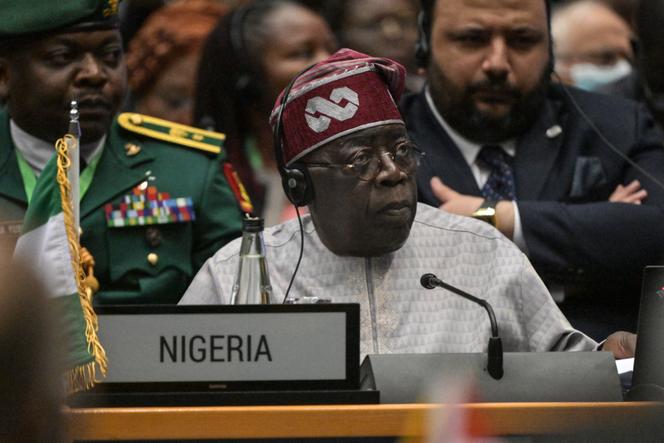


When he was appointed head of the Economic Community of West African States (ECOWAS) on July 9, Bola Tinubu made it clear from the outset that democracy is "the best form of government," even if it is "very difficult to manage." "We need it to set an example for the rest of Africa and the world," insisted the newly-elected Nigerian president. "We will not allow coup after coup in West Africa." Mali, Guinea and Burkina Faso had just suffered five in three years. But barely three weeks after that first speech, a sixth coup is now underway. Since Wednesday July 26, the President of Niger, Mohamed Bazoum, has been (as he himself put it in an article published in the Washington Post), a "hostage" in his presidential residence in Niamey.
As ECOWAS chair and president of the region's largest economic power, Tinubu is on the front line to ensure the return of constitutional order in Niger and to rein in General Abdourahamane Tiani, leader of the Conseil national pour la sauvegarde de la patrie (CNSP). On Sunday, the leaders of the sub-region gave the junta a one-week ultimatum to relinquish power, without ruling out a "recourse to force," i.e. a military operation, should it fail to do so. Severe economic sanctions (freezing of Nigerien state assets, suspension of commercial transactions, etc.) have already been imposed. Nigeria has reinforced them by cutting off electricity supplies to Niger, which is 70% dependent on Nigeria for its energy.
In the space of a few days, the crisis spread to Mali and Burkina Faso, ruled by military coup plotters and Moscow's partners in the sub-region. They have warned that intervention in Niger would constitute a "declaration of war" against them, heightening the risk of a regional conflagration. On Wednesday, Niger general Salifou Mody, considered to be the CNSP's number 2, visited Bamako and Ouagadougou to enlist the support of the "sister republics." According to diplomatic sources, "contact has also been established in Mali between the Niger junta and Wagner's Russian mercenaries."
At the same time, a summit of ECOWAS chiefs of staff is being held in the Nigerian capital, Abuja, until Friday. "The military option is the very last option on the table, but we must be prepared for this possibility," ECOWAS Commissioner for Political Affairs and Security Abdel-Fatau Musah said on Wednesday. On the diplomatic front, the mediation led by former Nigerian head of state Abdulsalami Abubakar has failed. The ECOWAS delegation he was leading only stayed in Niamey for a few hours on Thursday, and was unable to meet either the putschists' leader or the overthrown president.
You have 57.2% of this article left to read. The rest is for subscribers only.
